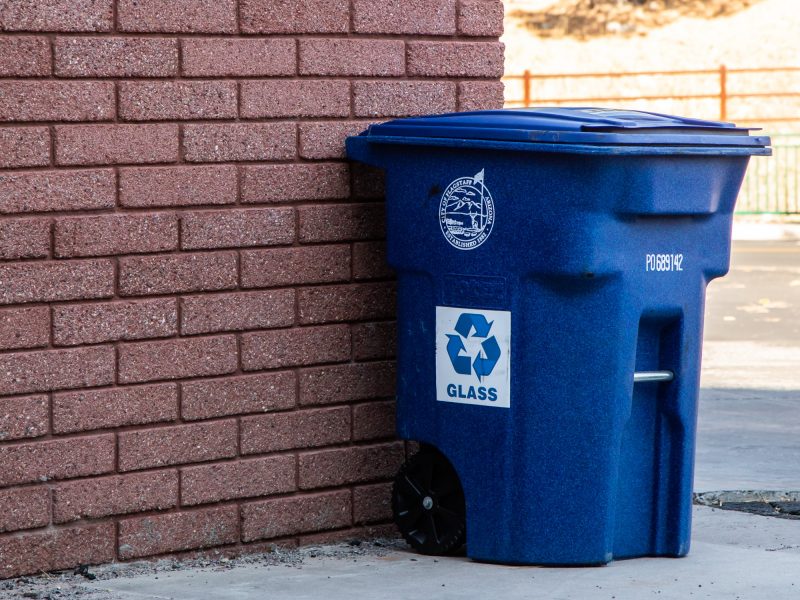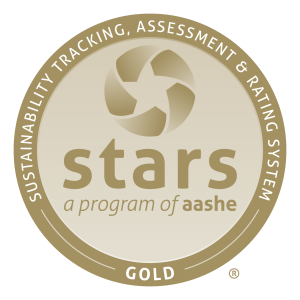Connect With Us...
Explore our work...
Recycling on Campus
There are Changes Coming to how NAU Recycles
As part of NAU’s sustainability journey, we are very excited to announce that we are revamping our indoor recycling and landfill bin system. This project is a collaboration between the student-led NAU Green Fund and the NAU administration. This revamp will streamline the system and will increase recycling on campus. Once deployed, we will be evaluating the effectiveness of the system and will make adjustments if needed. For questions about the new recycling system visit the Recycling Updates page.

Recycling in Flagstaff can get complicated, for more information on what is recyclable, look here.
At NAU, there are certain items that are unique. For more information on Special Recyclables, refer to this page.
Tips About Recycling At NAU
Recycling on campus Accordion Closed
- Keep it clean and dry—separate wet waste and food waste from recyclables.
- Look for the recycling symbol on bins.
- Refer to the City of Flagstaff’s recycling page to learn more about what can be recycled. Currently accepted materials are as follows: metal cans and pans (empty and clean), paper and cardboard (flattened boxes), plastic bottles, jugs, and jars only (no other plastics – no plastic cups/straws; no liquids; no organics).
More Information About Recycling: Metal Accordion Closed
Metal Cans, Tins, and Foil
- YES!
- Metal cans (aluminum, steel, tin)
- Disposable aluminum pie tins
- Aluminum foil
-
Gather clean aluminum foil into a ball about the size of a softball before recycling. Smaller pieces won’t make it through the sorting process.
-
- Pots and pans
- NO!
- Aerosol cans
- Food-crusted foil. If it’s not clean, don’t include it.
- Random metal objects/scrap metal
- WHY!
- It takes 90% less energy to create an aluminum can from recycled aluminum vs. creating one from scratch.
- Aluminum can be recycled thousands of times (infinitely, in fact!) and will never lose strength.
More Information About Recycling: Paper and Cardboard Accordion Closed
- YES!
- Paper
- Paper folders
- Magazines
- Paper envelops
- Cardboard
- Boxes – flatten to save space
- Cardboard tubes
- Paperback books
- Pizza boxes (no food, some grease okay)
- NO!
- Shopping receipts
- Paper with glitter, paint, watercolor, etc
- Waxy paper or cardboard
- Hardback books
- Loose shredded paper. Only accepted if contained in a paper bag
More Information About Recycling: Plastic Bottles, Jugs, & Jars Accordion Closed
- YES!
- Plastic bottles
- Plastic jugs
- Plastic jars
- NO!
- Plastic tubs, clamshells, other plastics
- Plastic bags
- Soft plastics
- Polystyrene
- Any food or liquids
- TIPS!
- Reattach plastic lids and caps so they get recycled too.
- Spatulas are excellent for getting the last bit of gunk out of bottles and jars.
- For oily bottles, like salad dressing, add a drop of dishwasher fluid and some water. Then reattach the lid and shake to get rid of the gunk and oily residue.
More Information About Recycling: What to Keep Out Accordion Closed
These items jam up equipment, ruin other recyclables, and/or threaten worker safety. Please keep them out of the recycle cart.
- Plastic bags and other soft plastics
- Clothing, textiles, and shoes
- Rechargeable electronics
- Computers and electronics
- Food and liquids
Campus Living Community Recycling Accordion Closed
- Separate recyclables from the trash in the bins provided in your residence hall room.
- Deposit clean recyclable materials in outdoor recycling dumpsters.
- Trash needs to be put in the marked “trash” dumpsters located directly outside of the halls.
- Instead of buying trash bags, line your bins with used shopping bags.
Administrative and academic building recycling Accordion Closed
- Please put your recyclables in marked recycling bins.
- Deposit wet wastes and non-recyclable materials in a central waste repository on your floor’s lounge or in bathroom trash containers.
- Custodial crews collect recyclables from your office or classroom and bag this material for the recycling dumpster.
Do you have questions about recycling? Check out the City of Flagstaff’s online Recycling Guide or NAU’s Recycling FAQ page.
Think you’re a savvy recycler? Take the QUIZ and prove it. Then challenge your friends, family, and coworkers.
